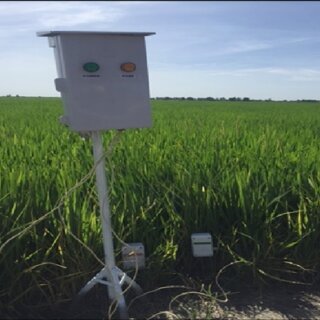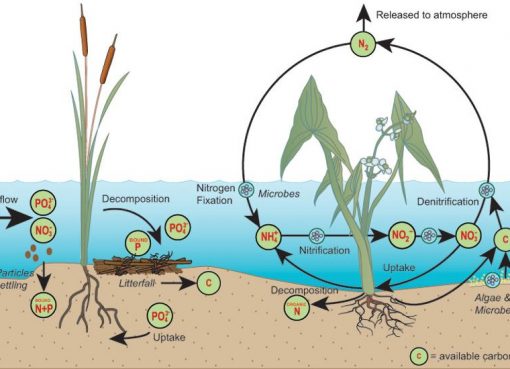Anwesha Sharma1 and Popy Bora2
1Ph.D Scholar, Department of Plant Pathology, Assam Agricultural University, Jorhat, Assam
2Senior Scientist, AAU-ARRI, Titabor, Jorhat, Assam
Corresponding author: anweshakashyap97@gmail.com
Abstract:
In India, where agriculture is the backbone of economy, the integration of Artificial Intelligence (AI) is revolutionizing plant health management, promising substantial improvements in crop productivity and sustainability. This article explores the transformative impact of AI on plant protection and growth, highlighting its potential to mitigate significant challenges such as pest infestations, diseases, and climate variability. By leveraging AI-powered precision agriculture, early disease detection, predictive pest management, and soil health monitoring, Indian farmers are witnessing enhanced yields and reduced input costs. Success stories from the states like Andhra Pradesh and Maharashtra underscore the practical benefits of AI interventions, including yield increases of up to 30% and reductions in pesticide usage by 25%. The future prospects for AI in Indian agriculture are promising, with market growth projections at a CAGR of 22.5% from 2020 to 2025, driven by AI-powered marketplaces, climate resilience innovations, and robust policy support. As AI continues to forge a path towards a more productive and sustainable agricultural landscape in India, it holds the promise of ensuring food security and economic prosperity for the nation’s farmers and consumers alike.
Keywords: Agriculture, AI, Plant Health, Soil Health, Sustainable Agriculture
Introduction:
In the bustling agricultural landscapes of India, a quiet revolution is taking place. Artificial Intelligence (AI) is emerging as a game-changer in plant health management, promising to enhance crop productivity and ensure food security for a growing population. India, with its diverse agro-climatic zones, is one of the largest producers of various crops globally. However, Indian agriculture faces significant challenges, including pest infestations, diseases, and unpredictable weather patterns. According to a report by the Food and Agriculture Organization (FAO), India loses approximately 15-25% of its crop yield to pests and diseases annually. This loss translates to about $13 billion in economic terms (Sharma et al., 2024).
The Role of AI in Plant Health
- Precision agriculture:
Leveraging AI-powered technologies is revolutionizing crop management by optimizing agricultural practices through real-time data collection and analysis. Data from sensors, satellites, and drones is analysed using machine learning algorithms to provide farmers with actionable insights. These insights help in monitoring crop health, predicting weather conditions, and detecting pest and disease outbreaks early. AI-driven platforms like Microsoft’s Azure FarmBeats enable precise application of water, fertilizers, and pesticides, significantly reducing wastage and costs. By targeting inputs accurately, farmers can enhance efficiency, increase yields by up to 30%, and promote environmental sustainability through reduced chemical use and optimized water management. This holistic approach ensures healthier crops and higher productivity, contributing to a more sustainable and profitable agricultural sector.
- Early Disease Detection:
AI algorithms are revolutionizing plant disease management by leveraging advanced image analysis to identify symptoms at an early stage. Using drones or smartphones, farmers can capture detailed images of their crops, which AI systems then analyse for signs of disease. One prominent application in this domain is Plantix, developed by PEAT. This app uses sophisticated AI technology to diagnose plant diseases from uploaded images with remarkable accuracy. Upon identifying a disease, Plantix not only provides a diagnosis but also suggests effective treatment options and preventive measures. The significance of early disease detection cannot be overstated. Traditional methods often rely on visual inspections and expert judgments, which can be time-consuming and less precise. In contrast, AI-powered tools like Plantix offer rapid and accurate diagnostics, enabling farmers to take immediate action. This timely intervention is crucial in preventing the spread of diseases, which can devastate crops if left unchecked. The practical benefits of such technology are substantial. For example, a study by Mohanty et al. (2016) highlighted how early disease detection through AI could significantly reduce crop losses. By identifying diseases early, farmers can apply targeted treatments, minimizing damage and preserving the health of their crops. This not only enhances crop yields but also reduces the reliance on broad-spectrum pesticides, promoting more sustainable farming practices. Moreover, the integration of AI in disease management helps farmers optimize their resources and reduce costs. By knowing precisely when and where to apply treatments, farmers can avoid unnecessary expenditures on pesticides and other inputs. This efficiency translates into higher profitability and more sustainable agricultural practices.
- Pest Management:
Within the rhizosphere, microbial communities orchestrate a symphony of biochemical exchanges, facilitating nutrient uptake, water retention, and disease resistance (Sharma, 2024). AI models predict pest outbreaks by analysing weather patterns, crop conditions, and historical data. The Indian startup, AgNext, uses AI to predict pest infestations and recommend timely interventions. Such predictive capabilities can save crops from devastating pest attacks, ensuring better yields (Murugan et al., 2024).
- Soil Health Monitoring:
AI tools assess soil health by analysing parameters like moisture levels, nutrient content, and pH balance. Companies like CropIn provide AI-driven solutions to monitor soil health and recommend appropriate soil management practices. Healthy soils lead to healthier crops and sustainable agriculture.
Success Stories in India
In Andhra Pradesh, a significant leap in agricultural innovation occurred in 2019 when the state government partnered with Microsoft to deploy AI technologies in farming. This collaboration focused on providing AI-based advisories to farmers, particularly for optimizing sowing times and pest management strategies. By leveraging machine learning algorithms and real-time data analytics, the initiative enabled farmers to make informed decisions that led to a remarkable 30% increase in crop yields. In Maharashtra, the implementation of an AI-based pest management system for cotton crops has similarly transformed agricultural practices. The AI system analyses data on weather patterns, crop conditions, and pest behaviour to provide precise recommendations for pest control (Jha et al., 2019). As a result, pesticide usage was reduced by 25%, leading to both cost savings and environmental benefits. Furthermore, the optimized pest management practices contributed to a 20% increase in cotton yields, demonstrating the powerful impact of AI in enhancing agricultural productivity and sustainability.
Future prospects
The future of AI in Indian agriculture looks promising, with several initiatives and investments underway. According to a report by Nasscom, the AI market in Indian agriculture is expected to grow at a CAGR of 22.5% from 2020 to 2025. Here are some anticipated trends:
- AI will facilitate better market access for farmers through digital platforms, helping them get fair prices for their produce. This will enhance their income and encourage them to adopt AI technologies.
- AI can help develop climate-resilient crop varieties by analysing genetic data and environmental conditions. This will be crucial in adapting to the challenges posed by climate change.
- The Indian government’s National AI Strategy emphasizes the use of AI in agriculture. Continued policy support and investments in AI research and infrastructure will accelerate the adoption of AI in farming.
Conclusion
AI is not just a buzzword but a transformative force in Indian agriculture. By enhancing plant health management, AI is paving the way for increased crop productivity and sustainability. As India moves towards a future where technology and agriculture go hand in hand, the benefits of AI will be reaped by farmers and consumers alike, ensuring food security and economic prosperity. The integration of Artificial Intelligence (AI) into agriculture represents a transformative leap forward in enhancing plant health management and boosting crop productivity. As demonstrated, AI-powered technologies are proving to be pivotal in addressing key challenges faced by farmers, such as pest infestations, diseases, and resource management. The use of AI for precision agriculture – through data collected from sensors, satellites, and drones – enables more efficient application of water, fertilizers, and pesticides, leading to substantial increases in crop yields and reductions in input costs. Furthermore, AI-based systems for early disease detection, such as Plantix, empower farmers with accurate diagnostics and actionable insights, allowing for timely interventions that mitigate the spread of diseases and minimize crop losses. As AI technology continues to evolve, it is expected to play a central role in developing climate-resilient crops, enhancing market access for farmers, and shaping a more sustainable agricultural landscape.
References:
Jha, K., Doshi, A., Patel, P. & Shah, M. (2019). A comprehensive review on automation in agriculture using artificial intelligence. Artificial Intelligence in Agriculture, 2, 1-12. https://doi.org/10.1016/j.aiia.2019.05.004
Sharma, A., Kumar, S., Singh, A., Kumar, S., Yadav, H. C., Hazarika, S. & Hasan, R. (2024). Exploring the Role of Robotic Automation in Climate Vulnerability Mitigation: Towards Sustainable Horticulture. International Journal of Environment and Climate Change, 14(2), 6-13.
Sharma, A. (2024). The Crucial Role of Microbiome in Plant Health. Bione: E-zine of Biological Sciences, 29. http://babrone.edu.in/blog/?p=5360
Mohanty, S. P., Hughes, D. P. & Salathé, M. (2016). Using deep learning for image-based plant disease detection. Frontiers in Plant Science, 7, 1419. https://doi.org/10.3389/fpls.2016.01419.
Murugan, J., Kaliyanandi, M. & Carmel Sobia, M. (2024). Revolutionizing Precision Agriculture Using Artificial Intelligence and Machine Learning. Data Science for Agricultural Innovation and Productivity, 17, 110-126. DOI: 10.2174/9789815196177124010009




